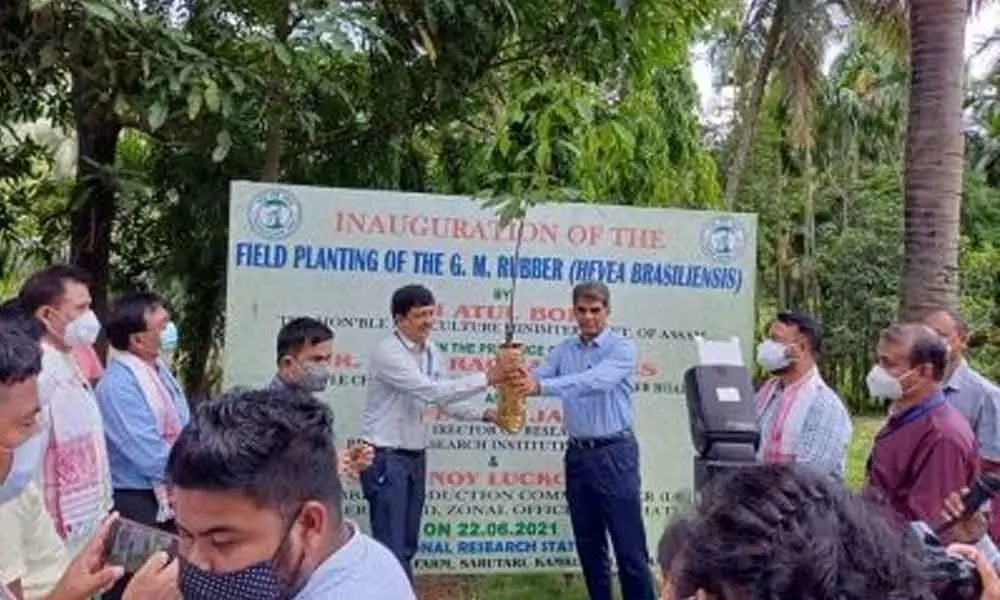World's first genetically modified rubber plant planted in Assam

World’s first genetically modified rubber plant planted in Assam
In a historic step, the world’s first genetically modified (GM) rubber plant was planted on Tuesday on the outskirts of Guwahati by the Chairman and Executive Director of the Rubber Board, K.N. Raghavan.
In a historic step, the world's first genetically modified (GM) rubber plant was planted on Tuesday on the outskirts of Guwahati by the Chairman and Executive Director of the Rubber Board, K.N. Raghavan.
The GM rubber plant, which was planted at the Rubber Board's Sarutari research farm near Guwahati, was developed at the Kerala-based Rubber Research Institute of India (RRII) through long years of research at its biotechnology laboratory.
Raghavan said that the GM rubber plant, the first of its kind developed exclusively for this region, is expected to grow well under the climatic conditions of the mountainous northeast region. The Rubber Board Chairman said that the GM rubber plant would be a game-changer in natural rubber cultivation in India, with additional copies of the gene MnSOD (manganese-containing superoxide dismutase) inserted in it.
"The GM rubber plant is expected to tide over the severe cold conditions during winter, which is a major factor affecting the growth of young rubber plants. Natural rubber is a native of warm humid Amazon forests and it is not naturally suited for the cold conditions in this part of the country," he said.
Raghavan said that through breeding and selection, RRII, a Rubber Board research body, had earlier developed two high yielding hybrid clones of rubber that are adapted to the climatic conditions of the northeast region.
According to the physician-turned-Indian Revenue Service officer, the growth of young rubber remains suspended during the winter months, which are also characterised by progressive drying of the soil.
"This is the reason for the long immaturity period of this crop in the region. The MnSOD gene has the ability to protect the plants from the adverse effects of severe environmental stresses such as cold, drought etc. "Laboratory studies conducted at the RRII in Kerala's Kottayam showed that GM rubber plants over-expressed the MnSOD gene as expected, offering protection to the cells. Therefore, it is expected that the GM rubber plants will grow fast here," Raghavan said.
He further explained that what is planted now is not on a commercial basis, but on an experimental level following all mandatory bio-safety measures applicable to field trials involving GM crops. He also allayed unfounded fears about GM rubber. The MnSOD gene used in the GM rubber was taken from the rubber plant itself, he said.
"Its copies were multiplied in the laboratory and reinserted into a cell of the rubber plant which was then regenerated into a full plant that is now planted in the field.
"There are no plant species in India that can breed with natural rubber. Therefore, there is no risk of the genes flowing from the GM rubber into any other native species, a concern often raised by environmental groups against GM plants in general," he pointed out.




